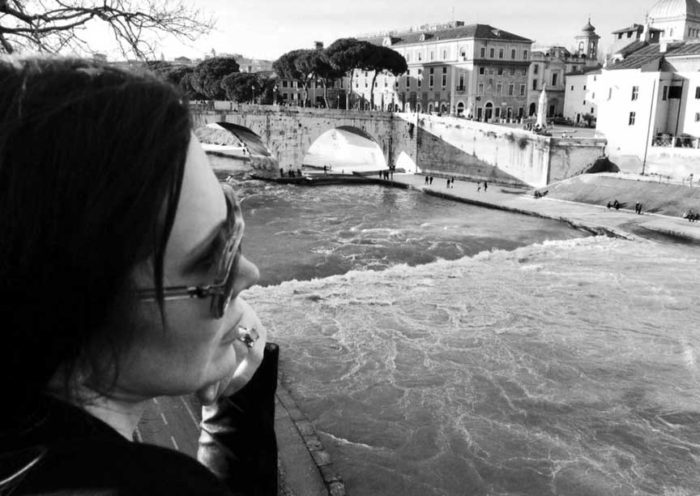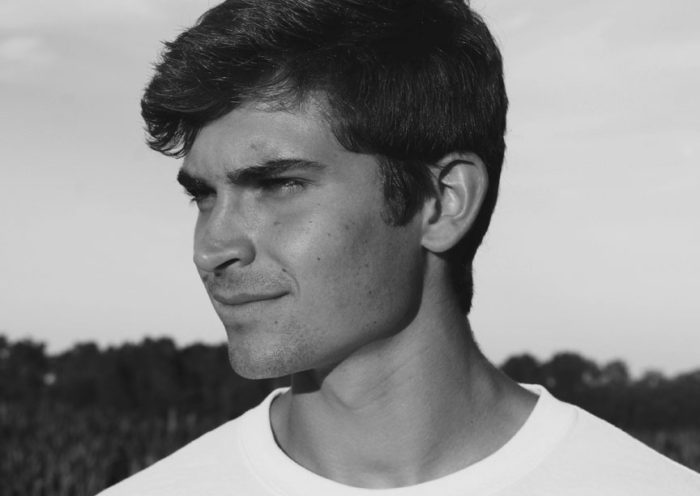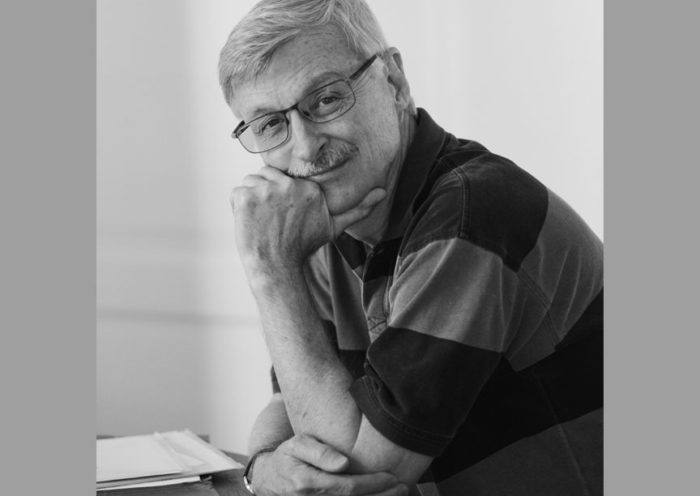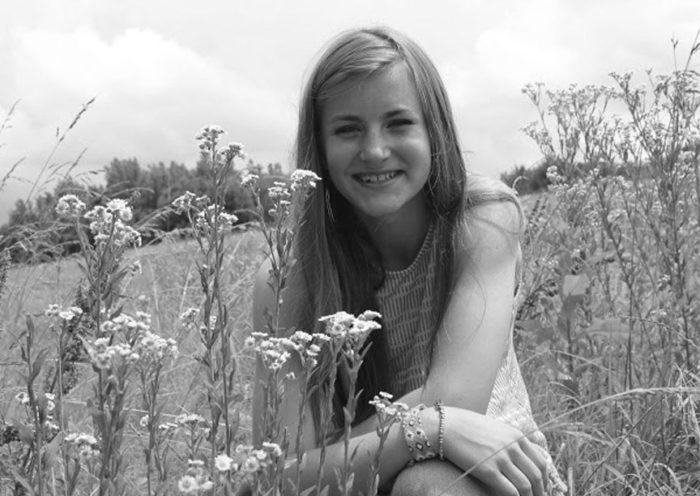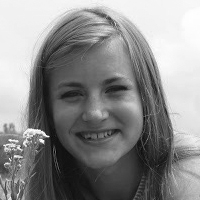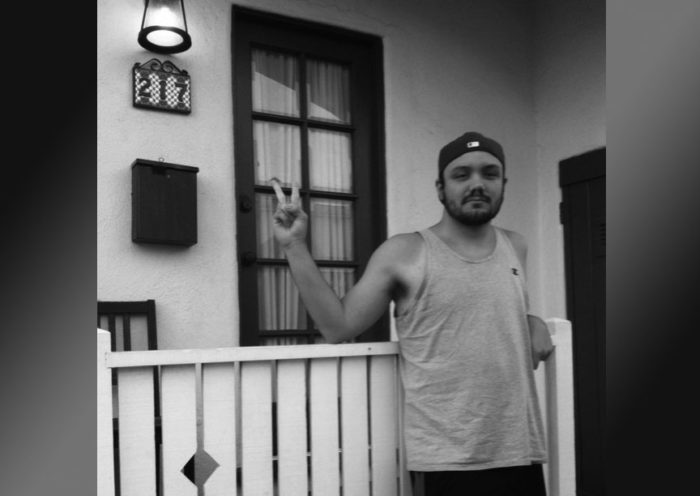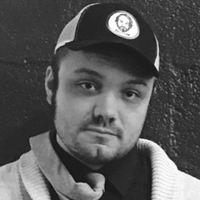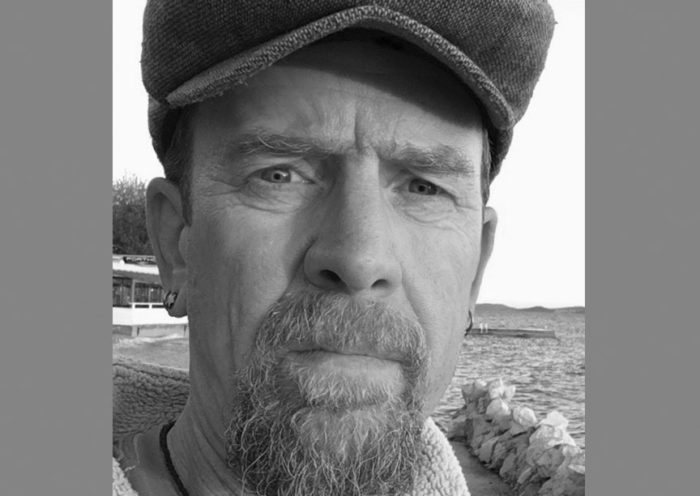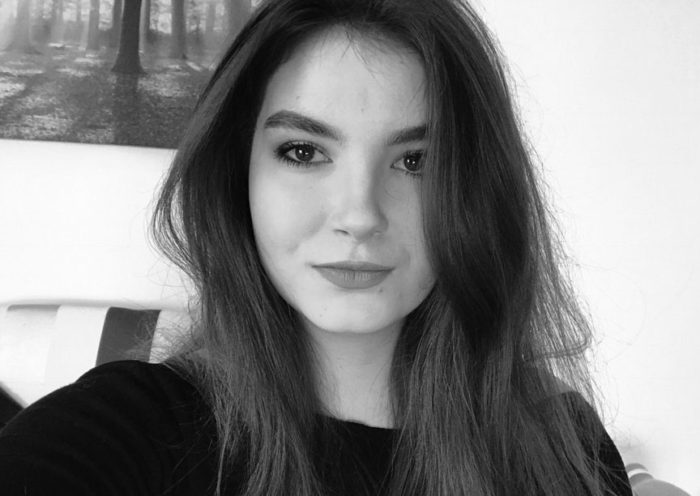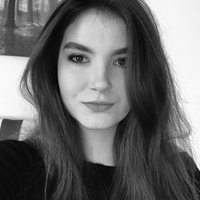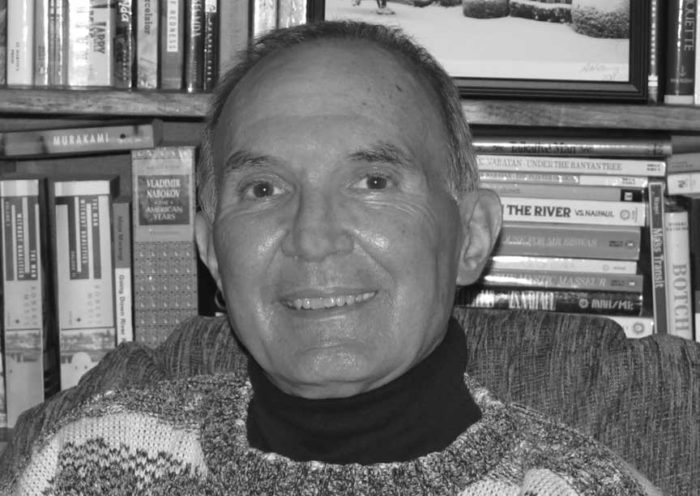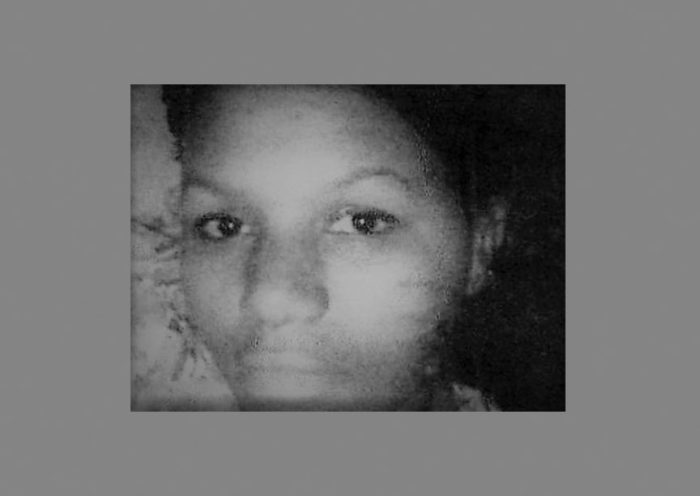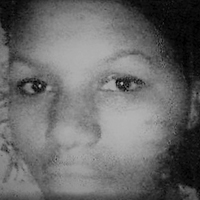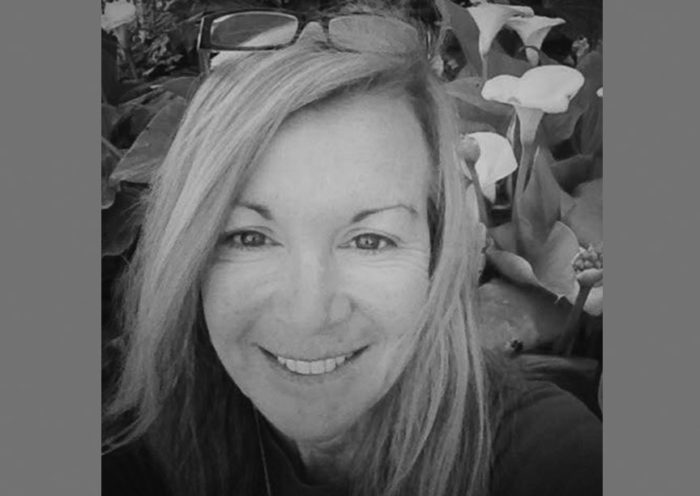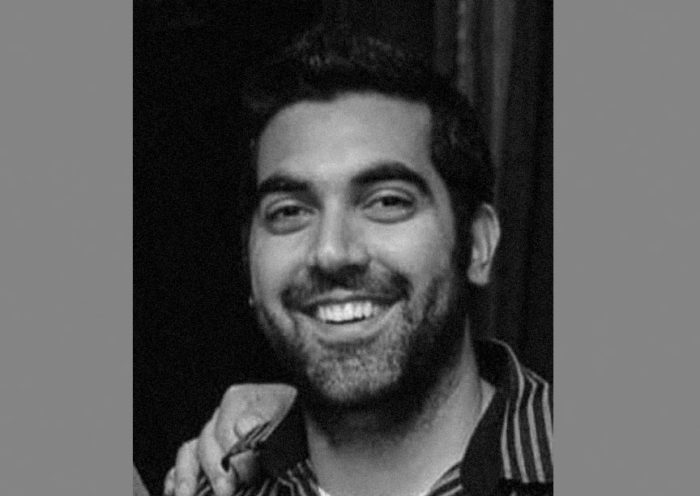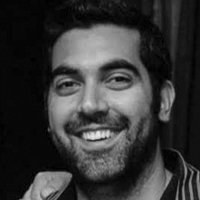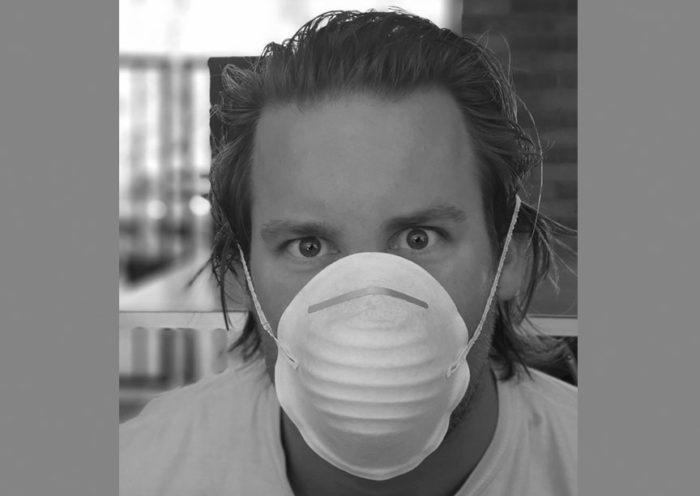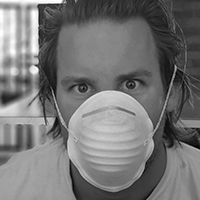Word May Set You Free
By Marco Etheridge
Sweeney thought the kidnappings would be the difficult part, but they proved to be the easiest. What he discovered is that people are disconnected from their surroundings. Each of the abductions went down more or less the same way. One of the agents would be walking down a city sidewalk; strolling from the office or the subway station. Their faces were invariably glued to their smart phones, oblivious to the world around them.
Buck Mulligan and Sweeney worked as a team. They slipped
up from behind while the agent was busy reading texts or yakking into the
phone. Sweeney zapped their target with a stun-gun. Buck grabbed the sagging
body under the armpits before their victim turned into a rag doll. While Buck
held them upright, Sweeney popped a sack over their lolling heads. The van
pulled up, side door already open, Stephen’s strong torso leaning out. The
wobble-legged agent was thrown to the yawning door of the van and Stephen
Dedalus snatched the hooded body into the shadows. After scooping up whatever
belongings the victim had dropped, Buck and Sweeney followed. The van door slid
shut and Molly Bloom drove them away. It was as simple as pie. No one seemed to
notice or care. Maybe that was because it was New York City, or maybe because
even in NYC, nobody likes a literary agent.
No, the hard part wasn’t snatching them off the street.
The hard part was the long van ride from the City back to the warehouse in
middle-of-nowhere New Jersey. That first drive, after they snatched Jeff Lyons,
that was the longest. The guy whined and babbled like a little girl: What do
you want from me, I don’t want to die, please, please. It went on forever, over
and over, until Sweeney wanted to club him like a baby seal, which would have
spoiled the plan.
After that first interminable ride, Banshee said she was
damn sure going to show them another use for duct tape. She did just that. The
second drive was quieter; mostly just inarticulate moaning and nose breathing.
Leave it to the mystery writer to have a practical solution.
It was blind luck that they got two of the bastards in
one day, or, more correctly, a bastard and a bitch. In retrospect, Sweeney
realized they shouldn’t have been all that surprised. The literary agencies in
Manhattan are grouped in clusters, like infected buboes in the armpits of the
island. Set off a big enough bomb on West 21st Street, and you were liable to take out four
or five agencies. Not that Sweeney would consider that as an option. Bombs were
far to random, far too anonymous. It was a much more specific revenge that he
craved.
When Allie Stark ducked into the alley behind
Greenburg-Golden, she practically stepped into the van. The crew had just
snatched the Reuben guy, so why not? Bad
luck for the stylish Ms. Stark, and one less trip into the City for them. At
least the Stark chick was quiet, unlike Mr. BJ Reuben. He blubbered and made
eyes at the Stark woman like he knew her. She ignored the crybaby, keeping her
eyes focused on her abductors. All that long drive to Jersey, she didn’t make a
sound.
* * *
Molly leaned through the heavy steel door, her voice
coming thick and dull from under the latex mask.
“Are you ready for the opening monologue? I want to lock
these parasites in their boxes. Everybody is sick of listening to their shit.”
Sweeney rose from a battered steel table, five manila
folders in his left hand.
“Yes, Ms. Bloom, I am ready.”
“It’s Mrs. Bloom, as you know all too well. Don’t forget
your mask.”
“Right, the mask.”
Sweeney dropped the folders onto the chipped tabletop
and reached for a crumpled pile of latex. It was the distorted face of a
nightmare leprechaun; a corpse face without an Irish skull. He stretched the
thing over his head, letting it snap into place around his neck. The latex
pulled against the stubble on his cheeks.
“How do I look?”
“No more of a fool than the rest of us.”
Molly Bloom raised a hand to either side of her
distorted head, miming alarm. A fake orange beard wobbled below an exaggerated
nose as she rolled her costumed head in a show of alarm.
“Oh, the humans, they be after me pot of gold! C’mon,
Sweeney, let’s get this show on the road.”
Molly disappeared through the doorframe.
Sweeney watched her go, this woman he loved, the woman
who would always be his best friend and never more. He stood alone in the room, his breath was
hot under the latex of the mask.
Sweeney’s mind wandered back to the conversation that
had changed everything, before she was Molly or he was Sweeney. They were
celebrating the completion of her latest work, some of the most poignant and
beautiful memoir he had ever read. Over drinks in the corner of a favorite bar,
their talk was of the usual frustrations, and the struggle to get published.
Then the words were coming out of his mouth: It’s time to teach these bastards
a lesson, change the rules of the game.
More than a year of planning followed, with endless
discussions over endless pints of beer. Sara was brought into the scheme and
became Banshee, then Joe became Buck Mulligan. What began as a formless fantasy
of revenge took on sharp edges. By the time Stephen Dedalus joined the group,
the thing had become real. Sweeney shook himself out of his memories and looked
through the open doorway. And now it all comes down to this. Are you ready?
He grabbed the five file folders from the table and stepped
past the rusted steel door.
* * *
Evening light leaked into the warehouse through jagged
holes in the painted-over windows. Layers of surplus industrial paint peeled
from the concrete wall; huge patches of pea green sloughing away from
baby-slime yellow. Water dripped into puddles at the windowless back wall. Time
had not been kind to this abandoned hulk, and it had been abandoned a long
time. A collection of five small shipping containers stood in a rough row;
ten-foot long steel boxes in faded colors of blue and red and green. The doors
of the containers were standing open; eight-foot-wide by eight-feet-tall.
In front of the containers sat a row of five aging steel
chairs. In the chairs sat two women and three men, all looking decidedly worse
for the wear. Each of them were manacled; one ankle hand-cuffed to a heavy
chair leg.
Sweeney crossed the chipped concrete floor, taking his
place beside four masked figures standing in front of the seated line. He
slapped the file folders against his thigh. Five sets of eyes looked up at him,
eyes that were angry, or confused, or frightened. Sweeney ran his own eyes
across the faces, looking for the cracks.
The Collin woman looked scared; just plain, ordinary
scared. The first one they’d snatched, Jeff Lyons, he looked ready to burst
into tears. The BJ guy was a bluster of anger and indignation. It was the last
two that mattered. The older guy, Peter Schear, his eyes were taking everything
in, looking for a way out. But the Stark woman, her eyes never moved. They were
staring straight into Sweeney’s. He smiled at her, just to see what would
happen. What he got in return was the slightest raise of an eyebrow, nothing
more.
“Right. Let’s get started, shall we? Some of you have
been with us for a few days. Others have just arrived. Now that we are all
here, we can begin by laying out the rules. I…”
The BJ Reuben character interrupted him, his voice loud
and angry.
“What the hell are you talking about? What rules? Are
you some kind of crazy terrorists, or what?”
Banshee started forward, a Taser gripped in her left
hand. She aimed her outstretched hand at the crotch of Mr. Reuben’s expensive
slacks. He became suddenly very quiet, wide eyes staring at the thing Banshee
held.
“Well, then, let’s move straight into introductions. BJ
Reuben, I’d like you to meet Banshee. She will be your handler. I would advise
against any more outbursts. I don’t think she likes you very much. Ms. Banshee,
here is Mr. Reuben’s file. And would you pass the rest of these down, please?”
Banshee reached for the files. Through the holes of her
grotesque mask, Sweeney caught the bright gleam in her eyes. Someone is
enjoying this far too much. He had no doubt that Banshee would turn this whole
escape into a cutting edge mystery novel. Sweeney turned his attention back to
the seated captives.
“Moving right along then, let’s get to the rules. I am
sure most of you are aware that you are in the same business. In fact, I am
reasonably sure that some of you know each other quite well.”
He watched for any furtive glances and was not
disappointed.
“Think of these rules as submission guidelines. If you
don’t follow the rules, exactly as they are laid out, your stay here will be a
long one, and more uncomfortable than it needs to be. Each of you will be
paired with a handler. You will speak only to your handler, understood?”
“Ms. Collin, you’ll be working with Stephen. I think
you’ll find Mr. Dedalus to be quite a gentleman. Peter, you’ll be with Buck
Mulligan. He’s a bit hard at the edges, but I’m sure you two will hit it off.”
“Jeff Lyons, you’ll be working with Molly Bloom, you
lucky devil you. That takes care of everyone but Ms. Stark, who will be working
with me. My name is Sweeney. Ah, yes, Mr. Schear, thank you for the raised
hand.”
“Mr. Sweeney, I’m guessing that we’ve been abducted for
some reason, but I’m struggling to figure out what that reason is. I mean,
we’re just literary agents; not exactly high ransom targets if I understand the
situation correctly.”
The man’s voice was calm and smooth, probing for an
advantage.
“If we could just hold off on the questions, I think
this will go faster.”
Peter Schear shrugged, his hands in his lap.
“You are here for one reason, and that is to write. The
way you are going to get out of here is to write your way out. Your choice of
project is up to you. It can be a novel, a collection of short stories, even a
play if you like. Buck, what would you think about the choice to write a
stage-play?”
The answer came rough and hard.
“Delusional.”
“There you have it folks; and from a source that should
know. Buck writes some of the best dramatic dialogue out there, but I’m sure
none of you have ever heard it. His work is performed so far off Broadway it
might as well be Uzbekistan. As you can see, Buck is a large man, and I can
assure you he has no love for agents. I would not cross him if I were you.”
Sweeney paused to let his remark sink in.
“Now, back to why you are here. Whatever project you
choose, it will be submitted to a jury of your peers, namely other agents. We
will, of course, have to submit your work under assumed names. If an agent, any
agent, asks to read a full manuscript, or further chapters, or expresses the
slightest interest in representing your work, you will be free to go. One
simple, positive response is your magic key.”
“Wait, you want us to write something, submit it to an
agent, and wait for a response?”
“Another country heard from. Yes, Mr. Lyons, that is
exactly correct. You will write, your handler will transcribe the manuscript
into a computer file, and then we will send it off with as perfect a query
letter as we can conjure.”
Sweeney watched
the change in the man’s face; the look of a little boy about to cry replaced by
the look of a little boy struggling with his maths. Jeff Lyons swung his eyes
up as the difficulty of the problem dawned on him.
“But, but, that could take months!”
“Yes, it could, Mr. Lyons; all the more reason for you
to write well and quickly.”
“Ah, Mr. Reuben, you wish to comment?”
“Is this some crazy stunt to get published? Some
elaborate piece of performance art?”
“An astute and hopeful question, Mr. Reuben, but no,
this is not a stunt. Besides, each of us have published work, though perhaps
not to your standards. After all, you are the gatekeepers, are you not? You
judge who is worthy to walk the hallowed ground and who will remain out in the
cold, dark night. No, we are well past stunts or trickery. This is about
something much simpler; it is about getting even. I admit that there is some
thought of making it better for the writers coming after us, but mostly this is
just revenge. Banshee, do you have Mr. Reuben’s wish list?”
Banshee swung the folder open with a flick of her right
hand, the Taser still held in her left.
“Got it right here, Sweeney. BJ Reuben, always willing
to take a chance on a debut author. Looking for something that makes him miss
his stop on the subway. Likes literary fiction that is quirky; surprise him.
The usual rot.”
Sweeney raised a hand to cut off any more comment. I
should just let Banshee Tase this bastard in front of the others. That would
move things along. Just a nod and she would be so happy to oblige. She’s angry
and ready. Sweeney knew he could count on Banshee to do her part.
“We are wasting time here. Forgive me, perhaps I have
not been clear. If you wish to leave, you will write. Behind you are your
accommodations. Think of them as monastic cells. Each has been furnished with a
cot, a desk, and writing materials. Chairs you already have. Meals and other
essentials will be provided for you so long as you write. If you want to eat,
you write. If you want to shower, you write. It’s quite simple, really. Three
thousand words per day, seven days a week; in four weeks you will have a novel
of eighty-four thousand words. That is, I believe, your optimum length for a
debut novel, yes?”
“And what if we refuse?”
Lauren Collin has found her voice. Sweeney looked into
her brown eyes; attractive eyes. She may be scared, but at least she is
thinking.
“That is a very good question, Ms. Collin. There must be
penalties, of course, else how would the system function? If you refuse to
write, you will not eat. You will not shower. You will not be allowed out of
your comfortable cell. There are some other penalties as well, which I should
make clear. You may write whatever you wish. Your work can be tailored to your
own wish list, or the wish list of an agent that you know. But do not try to
plagiarize someone else’s work. If you do, we will know it. The penalty for
plagiarism is death, and I do not mean that in a metaphorical sense. You will
be shot, and your body will be dumped in a place where no one will ever find
it. Likewise, for any attempt at escape or mutiny. Do I make myself
sufficiently clear?”
The words seemed to sink in. There was a silence from
the line of chairs, then one raised hand.
“Yes, Ms. Stark, you have a question?”
“I just want to clarify. I write a novel. You send that
novel out to other literary agents. If one of those agents requests additional
material, or expresses any interest other than a rejection, then I go free?”
Sweeney smiled to himself, making note of the careful
choice of pronouns. There is no ‘we’ with this woman.
“That is exactly correct, Ms. Stark. I couldn’t have put
it more succinctly.”
There was that same barely raised eyebrow, the slightest
nod as if she were confirming something she already knew; then nothing. I like
this one, even if she is an agent. Careful, Boyo, this is not the time or
place.
“Very well, if there are no further questions, we need
to get you back into your cells. We must start the dinner preparations. There
are some good cooks amongst us, as some of you already know. You will not
suffer unduly. Tomorrow is our first work day, so you will want to get your
rest.”
Sweeney turned to his companions.
“If you will, please; one at a time of course. Escort
our guests back into their cells.”
* * *
Buck Mulligan bounced his ass down the bench between the
concrete wall and the long table. He pushed a plate of breakfast down the worn
surface. Once the big man was settled, he smiled across at the others.
“G’morning Banshee, morning Ka… sorry, Sweeney.”
“Morning, Buck. What, two weeks of practice and you’re
forgetting your lines? You’re the stage professional.”
“Yeah, sorry, a momentary lapse. Your two shining faces
put me off my guard. Banshee is smiling like a cat in a canary factory.”
“Understood, of course, but no mistakes in front of the
guests, please.”
The bigger man grunted, stabbing a fork into a mound of
scrambled eggs and roasted peppers. He chewed and nodded before he spoke again.
“Mmm… that’s some fine tucker. I don’t know if the
original Dedalus could cook, but our modern version is a wizard. What is the
line? God made food, the devil the cooks, or something like that.”
Banshee smiled at Buck from across the table. She was
curled around her coffee; a soft smile gleaming through a tent of dark hair and
bare forearms.
“You have it exactly, Mr. Mulligan.”
Buck looked between the two of them, Banshee’s dreamy
smile and Sweeney’s smirk. His suspicion grew in spite of the known facts. He
pointed his fork at them as he spoke.
“Okay, what’s the deal? Have you two been laying pipe?”
The first response was laughter, then more smirking.
“You have a suspicious mind, Buck Mulligan. Banshee and
I have done no more than sit here and enjoy each other’s company.”
Sweeney leaned into Banshee’s shoulder.
“Not that I wouldn’t jump at the chance, my dear, if
proclivities weren’t what they were.”
“Yeah, yeah, I’ll send you a memo if something changes.
As for you, Mr. Mulligan; laying pipe, really? This is how a man of the theater
speaks?”
Buck waved them off with his free hand, reaching for his
coffee with the other.
“Theater is the art of the people, don’t you know,
written in the language of the common man. Unlike the fancy prose of your
highbrow novelists like Sweeney here. So what’s with all this bliss and
happiness then?”
Banshee pushed herself upright, raising her coffee mug
between thin, spidery fingers.
“I can honestly say that I haven’t felt this good in
years. Almost three weeks of dealing with that whiny shit Reuben, and yet I
feel fantastic.”
“Is he actually writing anything?”
“Just enough to eat, and what he’s scribbling down is
crap. Worse than you would expect. Bitching, moaning, and scribbling shit;
that’s pretty much his daily agenda. It’s a good thing we aren’t actually
submitting this garbage to anyone.”
Buck nodded, savoring the tang of the peppers against
the smooth taste of the eggs. He looked between the two faces sitting across
the table, his fork poised midair.
“So what do we do with him?”
Sweeney turned to the smiling Banshee.
“He’s your guy. What do you think?”
She smiled even more, wrinkling her forehead as if it
were a stupid question.
“Look, I signed on for the long-haul here, just like the
rest of us. But I don’t have two years to waste on this little bitch. He
doesn’t have a bad novel in him, much less a decent one. I have my own projects
to write, and lovely maidens to chase. So I think it’s obvious: We kill him.”
The two men nodded their heads. Buck shoveled another
forkful of eggs into his mouth. Sweeney spoke first.
“Sounds reasonable to me. When do you want to do it?”
“After breakfast tomorrow. I’m feeling too relaxed right
now.”
“Who do you want to help you?”
“I don’t need any help to shoot him, but Stephen can
help me dump the heavy lump of shit. I’ll have more free time after that, so I
can play in the kitchen. I’ll bake you some biscuits, Buck.”
“I like biscuits.”
Buck pushed the empty plate aside, reached for his
coffee.
“Listen, I’m worried about this Peter Schear cat. He’s
the exact opposite of Banshee’s BJ. Pardon the pun.”
“In your dreams, Buck Mulligan.”
“I only dream about flying monkeys. Anyway, my guy is
following the rules like a hall monitor. I swear, it’s like he’s analyzed the
entire program, trying to figure out how to unlock it.”
Sweeney sipped at his cooling coffee.
“What about the stuff he’s writing?”
“Well, that would be worse news. It’s pap, pure and
simple. Setting that elitist judgment aside, it’s the kind of pap that would
sell in very respectable numbers. A dog, a pretty girl, a mildly shocking
conflict; every element is lifted from somebody. But we can’t shoot him for
plagiarism. He’s not lifting from one person; he’s lifting from everyone.”
“Well, I suppose it was bound to happen. It’s not
unreasonable that one out of the five would turn out to be a writer. Maybe we
just handed him an opportunity. At least he’s not trying to bust your balls.”
“No, but he’s a calculating bastard, I can tell you
that. I wouldn’t want to be on the other side of a negotiation with him. A
fella would come out short on that deal.”
“Think about what we should do with him, Buck. Banshee
will have a bit more time after eliminating the annoying Mr. Reuben. When she’s
not baking biscuits, perhaps she could give Peter Schear’s cage a bit of a
rattle?”
Banshee shook back her hair, grinning a wicked grin.
“I’d be delighted.”
* * *
It was after breakfast when they came for him. The
captives were all in their cells, but she could hear every word. The steel
boxes did not hide sounds as much as magnify them. Every noise, every groan or
fart, was broadcast across the open concrete room. Allie Stark heard the
outside door open, the footsteps heavy across the floor. This wasn’t part of
the routine. The handlers usually stayed away in the morning. No one had
shouted for a bathroom privilege. Allie sat absolutely still, the tip of her
pen hovering above a yellow legal pad. The footsteps passed in front of her
box, the sound of two people moving further up the line. She heard the
wrenching creak of a steel handle, then the groan of a heavy door opening.
“Okay, Reuben, on your feet.”
It was the woman, Banshee, with that voice like soft
gravel. The other one was silent; maybe one of the men.
“What do you want? What’s this about?”
Allie shook her head at the tone of BJ’s voice. You poor
idiot, three weeks and you still haven’t figured these people out. As if you
were still in charge of everything. You never were much for learning things.
Banshee’s voice cut across her thoughts, harsh and metallic.
“Shut up. I am sick to death of listening to you. Turn
around and put your hands behind your back. We’re going for a little walk.”
“But I…”
“I said shut up. I won’t say it again. Turn around,
hands behind your back, or I stun you right now. Dragging you will be more
work, but if that’s the way you want it, fine.”
There was the creak of a chair, the muffled sound of
movement, the faintest click of steel on steel. Then the sound of shuffling
feet, footsteps being retraced. Allie Stark sat quite still, listening to the
quiet that followed. She knew the others were listening as well.
The first gunshot cut through the silence, rolling like
thunder against the concrete walls. Two more shots followed, the echoes mixing
and dying. The thunder fell away, replaced by the sound of weeping from the
next cell.
* * *
“Dammit, Stephen, couldn’t you two keep your hands off
each other for a few more weeks? I thought you were the writer who wanted to reinvent
the modern love story. Instead, you get involved in some pulp romance.”
Molly Bloom stood in front of Stephen, her hands on her
hips. Dedalus raised his hands from the arms of the chair, shook his head,
dropped the hands to his lap. Molly blew out a huge sigh, turned to the others.
“Does someone want to help me out here? Anyone?”
Sweeney was slumped over the long table, silent. Banshee
leaned against the wall casting dangerous looks. Buck Mulligan sighed and
scratched at the stubble on his jaw, thinking of where to start.
“I think it’s safe to say that this changes things a
bit. Stephen, can you give us the quick version? But please, without any
graphic bits, because I am really not in the mood for that.”
Banshee laughed out loud.
“Yeah, I’m dying to hear this. At least someone is
getting laid. Please tell me that you took that stupid leprechaun mask off.”
“Look, I’m sorry; really I am. It was after you took
that Reuben prick out. Lauren was scared; I mean really freaked out. We were
just talking, you know. We had to whisper, so we were leaned in close. Then it
just happened.”
Sweeney raised his head from the table.
“Yes, it just happened. The Stockholm Syndrome kicked
in, or the earth moved beneath the two of you. It doesn’t matter at this point.
This pretty much tears it. Ms. Collin has to go, and so do you, Stephen. Then
you two can live happily ever after, or she can hand you over to the Feds.”
“I don’t think Lauren would do that.”
“Sure, of course. Buck, would you care to script this
one out for us?”
“No, Sweeney, I most certainly would not. But I agree
that they have to go, and they have to go quickly, which means we have to close
up shop. The question is, how long is it going to take to clean everything up?”
Sweeney’s laugh was sour.
“When we were planning this thing, we weighed out a lot
of contingencies, but I swear, I never thought of this one. But at least we
have an evacuation plan. I need to go over the checklist, but I originally
figured two days at the outside. We can probably get it done in one. After we
serve our guests their dinners, we can start packing up the gear. Stephen,
you’re going to have to wait a day or two before we can spring you two
lovebirds. Can you live with that?”
“Sure, of course we can. Look, I’m sorry. I’ll never
breathe a word of this to anyone. And you guys can keep my share of the
profits.”
“No, Mr. Dedalus, a deal is a deal. We spent an entire
year planning this thing. One of the rules was that if there were ever any
royalties, we split them evenly. You did your part, just like everyone else, so
the deal still stands as far as I’m concerned. Besides, you may need some money
when you finally get out of the slammer. As far as talking goes, never is a
long time. But we can’t kill you; we all go back too many years. Is everyone
okay with that?”
There were nods around the room. Sweeney shook his head.
“Right. There’s not a lot more we can do tonight besides
packing up the miscellaneous stuff. Tomorrow we move everyone out. Buck can
drive Stephen and Ms. Collin to the Denville Station. That’s in the opposite
direction of where we dumped Reuben. They can get to the city from there, or
wherever they choose to go. Stephen, you need to do whatever you can to keep a
lid on your new girlfriend until we can get clear of here.”
Stephen Dedalus
nodded his head, still slumped in his chair. Sweeney rose from the table.
“We’ve got a lot of work to do, so we better get to it.”
* * *
Hers was the last dinner to serve. Sweeney rapped twice,
his knuckles ringing on the steel door. Heavy cams groaned as he rotated the
thick handles. Before he fully opened it, Sweeney peeped through the gap in the
door. There was no need. Ms. Allie Stark was not poised to attack, sharpened
pencil raised to stab. She was sitting at her makeshift desk, as always, her
eyes calm and waiting. Vaguely disappointed, he retrieved a tray of food and
pulled open the door, edging into the steel box.
“Good evening Ms. Stark; here is your dinner.”
“Good evening, Mr. Sweeney. Mmm… it smells like curry. It
must be Stephen Dedalus’ turn in the kitchen. He is a very good cook, Mr.
Dedalus. I may actually miss his curries.”
Sweeney set the tray on the desk and took one step back.
“Are you leaving us, Ms. Stark?”
“Everything must come to an end, Mr. Sweeney, even this
little vacation.”
“Yes, well, I will leave you to your meal.”
Her voice stopped him before he could move.
“Would you mind very much staying for a bit? I am sick
of eating alone, truth be told.”
Sweeney shrugged, seated himself on the narrow cot.
“A bit of time is all I have, I’m afraid. Lots to do,
dishes to wash; you understand.”
“Yes, and love affairs to see to, I would imagine.”
She caught his harsh look and gave him back a half
smile.
“Relax, it’s no business of mine. The walls are quite
thin, that’s all. But it would make a very good party story, don’t you think? A
wonderful response to that awkward ‘how-did-you-two-meet’ question. Speaking of
questions, do you mind if I ask you one?”
“I believe you just did.”
“Alrighty, let’s make it two.”
Sweeney raised his hands palm up.
“Your name; how did you choose it? I mean, I understand
the others, the Joyce characters: very clever. And Banshee, that requires no
explanation. She has the sexiest voice on the planet, all gravel and threat. It
is a treat to listen to her.”
“She would be pleased to hear it.”
“Yes, I’m sure she would. But back to your name. Which
version of the Frenzy of Sweeney are you? Were you cursed for insulting a holy
man, or broken in the shock of battle.”
“I am impressed, Ms. Stark. You are well-versed in your
Irish literature.”
“Allie, please; I think we are long past the
formalities. And yes, I have a little something to show for all of that money
my parents handed over into the coffers of the Ivy League.”
“Brown University, if I remember correctly.”
“Yes, six years of it; and you?”
“I spent a bit of time in academia, but nothing so
prestigious.”
The woman ignored her food, her eyes fixed on his.
“Tell me, Sweeney, what do you think of my story?”
You asked for this, Boyo, engaging in a serious
conversation with this woman. All you had to do was drop off the food and go on
about your business, but no.
“To be honest, I like what you’re writing. It’s good,
edgy, but it will never sell.”
“I wasn’t thinking about it selling. You never had any
intention of submitting our manuscripts, so what does it matter? I may as well
write what I want. Isn’t that the way to create something real?”
Sweeney rose to his feet in one motion.
“Damn you, Allie Stark. Damn you to hell.”
* * *
Buck Mulligan stepped into the room. His crumpled
leprechaun mask dangled limply in one hand. The other three looked up from the
cramped table. Molly was the first to speak.
“Did everything go okay, Buck?”
“Sure, by the numbers, just like we planned. I dropped
the two lovebirds off at the Denville Station and came straight back here. But
the clock is ticking. We need to wrap this up if we want to stay out of
prison.”
Sweeney looked up from a pad of paper.
“Buck’s right, of course. We need to get the others out
of here and clear out ourselves. Let’s run through it one more time. Banshee,
is the pistol taken care of?”
“It’s handled, Sweeney. I ran the tap thing down through
the barrel. There were metal shavings everywhere. No one is getting ballistics
from that pistol. I swept up the shavings and mixed them in with some other
piles of junk.”
“And you dug the three slugs out of the hay bale?”
“You know I did. We can’t be leaving any bullets for the
cops to find. They went down the toilet.”
“Good work, thank you. We can toss the gun when we
leave. One more pistol in a New Jersey ditch; no one is going to notice or
care. I can smell the chlorine, so the bleaching must have gotten done, right?”
“Yes, we made Stephen do it. It seemed only fair. He
doused the toilets and the kitchen like a madman. I don’t think there is going
to be a lot of DNA left. Better if no one ever finds this place at all, but we
did our best.”
“Okay, Mrs. Bloom, that’s checked off the list as well.
Everything went to the storage unit this morning. I paid three months rent on
that thing, so no one will be opening it anytime soon. I don’t think anyone
will ever connect a bunch of pots and pans with a kidnapping, but if they do,
we will have a long head start.”
“Do we tell them anything about the cel phones,
Sweeney?”
“Sure, tell them the truth. We’re not thieves, but we
couldn’t have the cops tracking us. Their phones are in a package buried in the
mail room of the Reuben Park Group. It’s disguised as an unsolicited
manuscript. If they look hard, they may find it in a week or two.”
There was grim laughter around the table. Sweeney pushed
the legal pad away and looked at the others.
“You know they’ll never stop looking for us, right?
Kidnapping, a Federal offense and all of that; we need to get this last part
over with.”
Everyone nodded. Buck Mulligan’s voice cut across the
group.
“We need to be careful about the finger prints.
Everything has been doused with WD-40. All the doors will be open, so there
should be no need for anyone to touch anything, but make sure you keep the
latex gloves on until we are in the van and driving.”
Sweeney nodded his head.
“You all know what to do. You three take the van. You
dump Lyons and Schear near the train station. Their hoods don’t come off until
you push them out of the van. I do the last wipe down, then I take Ms. Stark in
the car. Once we’re all clear, we head for Philadelphia. Remember to watch the
speed limits and all of that. Any questions?”
It was Molly Bloom who spoke.
“The wild card is that prick Reuben. Banshee, you dumped
him in Patterson, right? He’s had a few days to do whatever he’s going to do.
What do you think?”
“We gave him the spiel, about how we know where he
lives, where his family lives. I think he’s scared enough to keep his mouth
shut, at least for a little while. I told him that if he talks, someone will
find him and kill him for real; slowly and painfully. Stephen said there is a
lot about this that Reuben wouldn’t want made public, but who knows.”
“I suppose we will find out soon enough. We give the
same talk to the others, of course. Let Banshee put the fear of all the gods
into them. Buck said it best; the clock is ticking. You guys get a move on. As
soon as you’re clear of here, I’ll do the last walk through and follow. See you
in Philadelphia.”
Without a word, the crew rose and set to work.
* * *
Sweeney crossed the concrete floor, a canvas bag in his
hand. The warehouse was in shadows. Steel doors gaped open on four of the
shipping containers; empty mouths on empty cells. The nearest, the fifth, was
shut tight. Sweeney rapped twice, then pulled at the heavy handles. The door
wrenched open, the handles clanged. A feeble light trickled in from a small
overhead vent. The generator was gone and the lights had gone with it.
Allie Stark was seated on her narrow cot, hands in her
lap, as if she were waiting on a bus. She held a hand to her forehead to fend
off the sudden light, weak as it was.
“Good afternoon, Sweeney, or evening; whichever it is.”
“Sorry to keep you waiting Ms. Stark. Late afternoon
would be accurate, I suppose.”
“If you call me Ms. Stark one more time, I’m going to
scream. And I can scream really loudly, so fair warning. Not that it matters,
since everyone is already gone. They are gone, aren’t they?”
“Yes, Allie, everyone else has left, as I’m sure you
heard. “
“Then I should be terrified: Trapped alone with a
legendary Irish madman.”
Sweeney did not think she looked at all terrified.
“What is it you’ve got there?”
Stepping into the gloom, he held out the canvas bag.
“I brought you your things; your purse, wallet. You’ll
have to do without your cell phone.”
Allie Stark took the bag with one hand, motioned to the
cot with the other.
“Have a seat while I pack.”
Sweeney shrugged and sat, leaning against the steel wall
at the far end of the cot.
Allie rose, took three steps to the desk, reached for a
stack of legal pads. She fit the pads into the canvas shopping bag and returned
to her place on the cot. It creaked under her slight weight as she sat.
“I’m packed.”
Her smile flashed in the dim light. Sweeney reached into
a side pocket of the work coat he was wearing.
“You should add this to your packing. It’s your
manuscript; as best as I can transcribe it.”
“Oh, a thumb-drive, how sweet. Now I will have something
to remember you by.”
“Right, a keepsake. I didn’t want you to lose all of
your hard work, that’s all.”
“One of the lessons I have learned in the last four
weeks is that I rather like working with paper and ink. I had forgotten that
lovely scratching sound the pen makes as it slides across the paper. Speaking
of lessons, did you learn yours?”
“And what lessons would those be?”
Allie Stark turned away from the bag in her lap, giving
Sweeney a frank stare.
“You know exactly what I am talking about. This elaborate
abduction; weeks of watching and listening. There must have been some
surprises, lessons you weren’t counting on.”
Sweeney looked away from her probing eyes.
“I’m going to need to get back to you on that. I wish I
had something profound to say, but I’m still trying to sort it out in my head.”
“I suppose that’s fair. Did you at least get what you
wanted out of this whole thing?”
“No, not so much, or rather yes and no. I think there
was more of the unexpected than the expected. Let’s just say that things didn’t
stick to the outline.”
“Maybe not as much as our friend Banshee? Direct anger,
driver revenge; she is very good at it.”
“Yes, I think you’re right. Banshee got exactly what she
was looking for, exactly what she was needing.”
“Are any of the others really dead? Mr. BJ Reuben in particular?”
“Dead?”
“Yes, you know, shuffled loose the mortal coil: Dead.”
“No, no one is dead.”
“Good, I’m glad for that.”
“You’re glad for them?”
“No, I’m glad for you, Sweeney.”
She raised a hand, pointing to his face.
“Since it’s just the two of us, would you be willing to
take off that stupid mask? It’s most unflattering, you know.”
“No, Allie, I would not be willing to take off this
stupid mask.”
Her eyes were on him again; grey, serious eyes.
“Then I am stuck with the image of a horribly disfigured
man; saber scar across the left cheek, a crooked, broken nose.”
“That is remarkably accurate. We should be going now.”
“All right, Sweeney, but just one more thing before we
go. When you send me the query letter for this novel, make sure you put in a
line, a code word, something I can recognize. I know, use this sentence: And
your words may set you free. I’ll make sure my assistant is looking for that.”
“What makes you think I’m going to write a novel about
this?”
“You’d be a fool not to.”
BIO
Marco Etheridge lives and writes in Vienna,
Austria. His fiction has appeared in Literally Stories, Dime Show Review, Five
on the Fifth, Storgy, Inlandia Journal, Manzano Mountain Review, Every Day
Fiction, Dead Mule School of Southern Literature, Literary Yard, Mobius: A
Journal for Social Change, Czykmate, Cleaning Up the Glitter, and Fleas on the
Dog. His non-fiction work has been featured at Route 7 and Bluntly Magazine.
Marco’s third novel, “Breaking the Bundles,” is available at fine online
booksellers.



